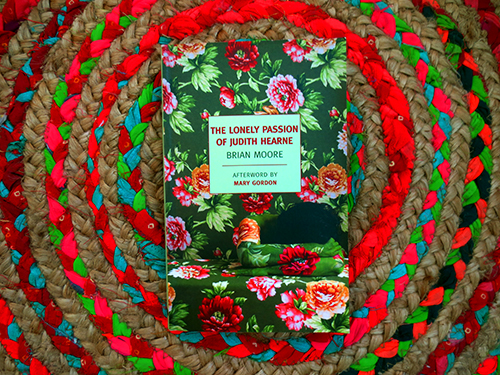The tragedy of the Titanic became famous worldwide as the first major international disaster in a time of peace. It’s generally believed that the ship’s maiden voyage began in Southampton, but, in reality, the Titanic first set sail from Belfast where it had been constructed.
Although not as famous or as well-known, Belfast produced a number of little ships that sank. And one such ship was Judith Hearne.
Judith, orphaned at an early age, is sent to live with her well-to-do aunt. Initially Judith is grateful. But that changes when her aunt, once old and needy, emotionally blackmails Judith into becoming a fulltime caretaker forcing Judith to abandon her studies and her efforts to create a career for herself. When Aunt D’Arcy finally dies, Judith is 36 years old, a spinster with limited funds, nowhere to go. And alone.
Judith, physically unattractive, awkward and lacking in social skills is overwhelmed by the life she’s been given. Brought up in a culture that demands respectability and self-reliability but without providing her the condition of possibility to fulfill such demands, Judith crumbles and begins to drink to hide her despair and her loneliness. Unfortunately, loneliness distorts perception. That’s why Judith couldn’t see that her landlady’s brother didn’t want her but the money he thought she had. Before him she was frayed but, once she discovers the truth, she is broken.
The Lonely Passion of Judith Hearne by Brian Moore was set in Belfast in the 1950s. Moore himself was from Belfast but disliked it so that he moved to Canada where he wrote Judith’s story.
After the Irish War of Independence in 1922, most of Ireland seceded from the UK and is now known as the Republic of Ireland with Dublin as its capital. However, six north eastern counties remained within the UK and are known as Northern Ireland with Belfast as its capital.
The Republic of Ireland is, for all practical purposes, a Catholic country. And maybe for this reason abortion was against the law save for extreme situations.
Then in 2012, Savita Halappanavar, 17weeks pregnant, had a miscarriage but the fetus did not expel so she requested an abortion. The abortion was denied. Savita subsequently developed sepsis and died at the age of 31. Savita’s husband sued the hospital and doctor in charge on the basis that his wife’s constitutional right to life had been breached. Not only did he win the case, but Savita’s story activated motion towards needed change. As did the story of Siobhán Whelan.
Siobhán, pregnant, was diagnosed with fatal foetal syndrome thus needed an abortion. The Irish government deprived her that possibility so Siobhán went to the UK to abort. But once back in Ireland, she took her case to the United Nations Human Rights Committee. In 2017, the Committee ruled that the Irish government had violated Whelan’s human rights.
In conclusion, the United Nations Human Rights Committee asserts that access to abortion and prevention of maternal mortality are human rights.
The United States is a charter member of the UN. So how can you demand others to obey the rules when you yourself don’t obey them?
-30-
Related: Rarely seen colour photos of Belfast life in the 1950s + Abortion in the Republic of Ireland + Mellet v. Ireland, 2016; Whelan v. Ireland, 2017 (United Nations Human Rights Committee) + Universal Declaration of Human Rights + UN Human Rights Committee Asserts that Access to Abortion and Prevention of Maternal Mortality are Human Rights + Right to life






